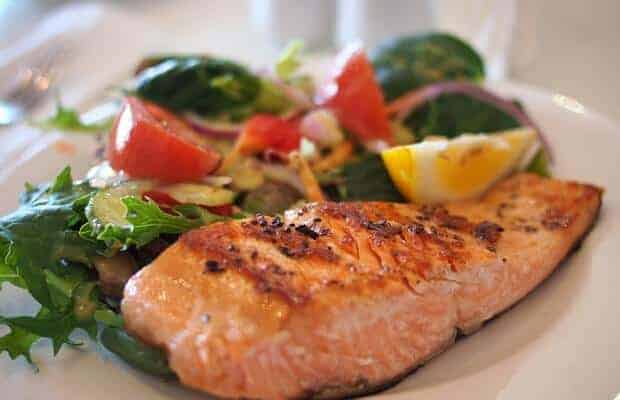What to Know About the Salmon on Your Plate
Norway is the largest exporter of salmon in the world. And while some of those fish are wild-caught, many are raised in "fish farms"- large cylindrical pens made of nylon in the open water. Sometimes these farmed fish escape, mixing with the local population and causing ecological issues. We see farmed fish in a Norwegian fjord and hear about potential solutions to the problem.
Global north’s growing appetite for farmed salmon imperils communities’ access to local fish

A new paper published today in Science Advances exposes the global aquaculture sector’s growing dependence on wild fish.
Despite industry claims to the contrary, these findings highlight how the growing appetite for expensive farmed salmon can leave coastal communities struggling to access affordable local fish like sardines and anchovies. Instead, these small pelagic fish are frequently caught, processed, and “reduced” to fishmeal and fish oil, almost all of which is used to feed farmed fish. These ‘reduction fisheries’ account for 26% of global ocean catch.
“As the aquaculture industry grows, so does its dependence on wild fish,” said Dr. Kathryn Matthews, Oceana Chief Scientist and one of the authors of the paper. “The continued rapid expansion of the sector will demand ever more fishmeal and fish oil, even as its use in feed becomes more efficient.”
The authors, which also include Dr. Patricia Majluf, Associate Professor with the Center for Environmental Sustainability at the Cayetano Heredia University and former Oceana Vice President in Peru; Dr. Daniel Pauly, Oceana Board Member, fisheries scientist, and principal investigator at Sea Around Us; Oceana Senior Analyst Dr. Daniel Skerritt; and Dr. Maria Lourdes D. Palomares, Senior Scientist and Research Unit Manager at Sea Around Us, debunk the industry’s use of the “Fish-in-Fish-out” (FIFO) ratio – the standard metric used to quantify how much wild fish is used to produce farmed fish. The FIFO ratio is often used as an indicator of the impact of aquaculture on wild fish stocks.
In the paper, the authors showcase several misleading practices about the FIFO ratio, such as averaging fishmeal and fish oil inputs of carnivores and herbivores together to conceal the high feed requirements of carnivorous species. This lowers the FIFO ratio, reaffirming the aquaculture industry’s claim that its dependence on fish oil and fishmeal is decreasing. But fish oil, especially, is a limited commodity that is increasingly in demand by salmon farms, which now supply 70% of all salmon consumed worldwide. In 2020, farmed Atlantic salmon alone accounted for 60% of fish oil usage, the authors calculated.
“The salmon industry is a not a food production system – it’s a food reduction system. It benefits the few who can afford it, but reduces access to nutritious fish for those who need it the most,” said Dr. Matthews.
For example, processing plants in West Africa are exploiting vast amounts of small pelagic, highly nutritious fish, mostly sardinella, to produce fishmeal and fish oil for export. “This is an equity issue – it puts local fishmongers at an unfair disadvantage because they cannot compete with the prices the plants are willing to pay for this global commodity,” Dr. Skerritt said.
Additionally, the authors note the turbulent future ahead for fishmeal and fish oil production. Climate change is impacting fish populations around the world, including the main source of fishmeal and fish oil – the Peruvian anchoveta. Like many others, this species in warmer waters contains less fish oil. Moreover, continued poor management of these fisheries allows for ever higher catches of juveniles, which also contain less oil. “Combined, these factors are driving feed manufacturers to look elsewhere for additional oil, including in fisheries which typically provide fish for direct human consumption, like mackerel,” said Dr Majluf.
For these reasons, the authors urge the industry to operationalize substitutes for fishmeal and especially fish oil in aquaculture fish feeds.
This paper is part of a special issue of Science Advances dedicated to aquaculture, which also includes an analysis about the need for greater transparency in aquaculture subsidy reporting by Dr. Rashid Sumaila, an Oceana Board Member and fisheries economist.

No comments:
Post a Comment